Love and Monsters: An Interview with Director Perry Blackshear on His New Film, 'The Siren'!2/6/2020 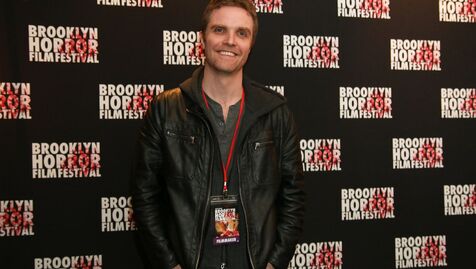 Love will haunt you... ...When you really sit down and think about it, a lot of horror films are about love, to one degree or another. But it often isn't between two "people". Let the Right One In sees a young boy fall for a centuries old vampire...Christine finds a young man enraptured with his car...and even Halloween is a one-sided love affair about Michael Myers obsession with Laurie Strode (yeah, I said it). Now on VOD from Dark Sky Films, The Siren is the latest in a long line of romantic horrors, from writer/director Perry Blackshear (They Look Like People). I recently had the pleasure of sitting down with Perry to chat about his new man meets deadly Siren film, and we chatted about love, the good in monsters, and what to expect from his next film! Killer Horror Critic: What interested you in the Siren mythology itself? Perry Blackshear: After ‘They Look Like People’, we wanted to try something a little different. Something like a dark fairytale. And I discovered the myth of the Rusalka while reading about Slavic mythology and I always thought it would make a great story because it’s a little bit like the vampire myth. But the difference is that instead of needing blood to survive, it’s more like an addiction, where the Rusalka absolutely just can’t help herself. I thought, what a great way to talk about love and about destructive love and the parts of yourself…we all have parts of ourselves that we hate, and it gets confusing when, are those parts of yourself you hate, you? And if they are, what does that mean? I thought it was a really rich, exciting thing to make a movie about that. I hadn’t seen that before and thought it would give our wonderful actress Margaret (Margaret Ying Drake) from ‘They Look Like People’ a chance to shine and to do something a little different. KHC: Kind of an odd question for you, is this in any way inspired by elements of Disney’s The Little Mermaid? PB: I would say that’s quite astute. So, the Rusalka myth and the Hans Christian Andersen stories I think are all sort of based off the same swirl of ancient legends from that time and place, so they all actually draw from a similar source. The Disney movie actually draws…I’ve never said this out loud…draws from the same source as our movie does. Originally, for example, the siren herself was going to be silent, like ‘The Little Mermaid’, and slowly learn to speak again. The siren is always fetishized in a lot of ways…And so we thought, why not make the other character unable to speak, and it would be this great new dynamic you hadn’t seen before. KHC: I could definitely see some of The Little Mermaid influences, or at least the Hans Christian story it’s based on. PB: We actually had a joke in the original script but we cut it. When she was looking at her jewelry stuff, she actually hummed one of the songs from ‘The Little Mermaid’ in one take. We cut it because we were like that’s just a little meta. "The Disney movie ('The Little Mermaid') actually draws…I’ve never said this out loud…draws from the same source as our movie does." KHC: Yeah, plus you don’t want Disney coming after you. [LAUGHS] You mentioned that you wanted to do something different with this, so what are your thoughts on how other films have handled the siren mythology, and what specifically did you want to do differently? PB: The two films I was really inspired by was ‘A Girl Walks Home Alone at Night’ and ‘Let the Right One In’, the original European version. In both cases, they were these sort of really dark love stories, and that was sort of the foundation. Myths and fairytales last for thousands of years I think for a reason, because they hit upon these very fundamental sort of experiences of being human. They get to explore our internal worlds and make them external in the form of fairies and monsters and goblins and all this stuff and I think that’s fantastic. We tried to keep the stuff we love about them but also flip some things around that we’ve seen before. So, the idea that the siren was sort of the other, the super fetishized woman, usually naked, usually sort of super evil/sexy, we sort of flipped it so we have the guy, we have the female POV of the guy undressing. The Rusalka was staring at him through the window. What I love about these two movies we mentioned is they’re movies from the perspective of the monster and it felt like an honest two-hander, like a real romance rather than just a story of a dude and this sexy, evil woman. Which is awesome, sometimes, but we wanted to try something a little different. That moment in ‘Girl Walks Home Alone at Night’, usually in these things the monstrous character sort of becomes human and lives happily ever after because of true love, but at the end of ‘Girl Walks Home Alone at Night’ and ‘Let the Right One In’, the monstrous character is like this is just me so just like deal or don’t. KHC: Yeah, they’re both pretty dark endings. PB: It’s very like, fuck, that’s kind of dangerous and very unconventional and a little frightening and I thought that was the direction I wanted to go, so we tried to keep the stories and all these myths and fairytales we love, but also try a few new stabs at some things that excited us. KHC: If you ask me, it’s a lot scarier in that sense too, because you’re dealing heavily in manipulation, right? Like oh shit, these people are entrenched deeply with this monster now and there’s not a way out. PB: Exactly. That’s also sort of confusing when you merge with the person you love and you lose your own sense of self because you’re super sucked in. I feel like both of them got sucked in by the other "The two films I was really inspired by was ‘A Girl Walks Home Alone at Night’ and ‘Let the Right One In’, the original European version. In both cases, they were these sort of really dark love stories, and that was sort of the foundation." KHC: Speaking of love, your film starts out with the quote from Friederich Nietzsche, “that which is done out of love always takes place beyond good and evil.” What does that quote mean to you personally, and how do you see it as a reflection of the film itself? PB: Excellent question. All of us were going through as we were making the movie, that sort of thirty-something, confronting this thing with our partners or our potential partners…we were trying to decide if our personality was a collection of bad habits and we could change and be the best version of ourselves and find our partner that way, or if we, you know, just this is the way we are. In some ways we all sort of, when we looked back at when we were younger, there was this sort of flooding feeling when you get love that makes no rational sense. Love that isn’t connected to marriage or things that make sense. As you get older your world narrows and you have to start thinking about the future and have all of these responsibilities and be a little bit practical, and we all thought about that time when we were so not ourselves, when love totally enraptured us and captured and truly in some cases screwed us up. That was what we wanted to make a movie about, in that flash point where you lose yourself and your whole world view changes. It’s sort of like a coming of age story in that way. I hope this is reflected in the film. We all felt very conflicted about this experience. Some of these things are very destructive and very exciting and very passionate but also kind of ruinous. We wanted to capture both sides of that, where it’s not love conquers all, love is always good, and it’s also not love will lead you astray, it’s just this seismic moment where the rest of the world disappears and it’s only you and your beloved and it’s sort of neither good nor bad in that sort of passion grey area. KHC: There’s definitely no argument that love itself is very confusing. I would say you achieved that as well. I personally felt you’re never really saying whether one character is right or wrong, but more about how each is experiencing this huge feeling. So, is it correct this film came about as a complication of feelings you and the cast members were having at the time? PB: I wrote the script but I wrote it extremely quickly and the two guy actors (Evan Dumouchel and MacLeod Andrews), are also producers, so they were sort of creative producers. When you make films like we do…it was just me and the cast on the lake house…they become extremely personal out of necessity or through osmosis somehow. These guys are my collaborators and I wrote these characters for them, so we talked a lot about their experiences and Margaret talked a lot about the character of the Rusalka. I don’t know if you’ve ever done something where you’re like, no more chocolate. Then you go and you buy chocolate, and as you’re eating the chocolate you go no, no, no, no, but you’re also still eating it. KHC: We’ve all been there. PB: That sort conflicted mind where you’re in the middle of doing something you know you should not be doing and are fighting it but still doing it, is what she got really excited about and I think all of us got pumped about that. I wanted to bring some of the personal stuff from all of the cast into the movie because I think it makes it much stronger and people get to draw from their lived experiences as well. KHC: This is your second time you’ve worked with the three main cast members, so I’m curious, what’s it like working with them, and do you feel there’s an advantage to working with such a small cast that you’re comfortable with? PB: I think that there’s definitely advantages. There’s all the shorthand. The guys and I were friends in college and we’ve been making movies for forever. They’re also filmmakers themselves and they just happen to be tremendously good actors, which is why I use them in addition to them being my friends. They’re just so good that I can’t stop. Margaret I met in grad school and has been a longtime collaborator as well. It’s fantastic. You all trust each other, there’s so much shorthand, and everybody’s there to work and to try to make it better. There’s very little ego. It’s wonderful. It’s also extremely challenging. It’s just us. So, there’s very little help. It’s like we’re out hiking in the wilderness by ourselves, so if something goes wrong, or if there’s a gaff in production, there’s no infrastructure behind us, so I would not necessarily say it’s the thing for everybody. KHC: What was the camaraderie on set like? Do you have any fun stories from just the four of you being out at this lake? PB: One of the cast members does not like the water at all. And I grew up on a lake so I’m sort of like a fish in the water, and I was always just like swimming, even in the cold. We were in the water a lot, I mean hours and hours a day. So that was something I think that people weren’t quite ready for. As far as camaraderie goes, there’s really nothing like it. You have to trust each other so much, people get so vulnerable, and because it’s just you guys, you really have to have each other’s back. So, it is this very intense, amazing family. We get to do this together. Even as bigger movies come and go, I feel like there’s always going to be a desire to make movies like this. Making movies you really care about with people you like, it’s the greatest thing ever. KHC: You mentioning the water reminds me, where did you find this lake and what was it like shooting in the water so much? PB: This was in Vermont. It was a friend of a friend of a friend that we rented the house from for about two weeks. It was a little remote, but there was actually a lot of motorboats on the lake, so it was not always easy sound wise. We shot on a few lakes up there. It was also full of mosquitos. I think I said this on the commentary, but if you see any of the actors looking sweaty and slick, it works because it makes them look sexy and sweaty but usually that’s bug spray, lots and lots of bug spray. [LAUGHS] KHC: One thing I love about Los Angeles, no mosquitos. I grew up in Illinois so I’m very familiar. Part of the reason I asked, audiences don’t always realize, when you see someone in the water, they’re not just in there for a minute, they’re generally in there for hours and hours on set. What was this like for Margaret having to be in the water for roughly ninety-five percent of this movie? PB: I gotta tell you, she is not necessarily a water person but she was totally devoted to it. Early on someone was like, are you really sure you want to do this, and she was like, absolutely! Sometimes she was in wetsuits or dry suits, sometimes we had hot water bottles waiting. There was a lot of sort of apparatus’ built around it, as much as we could, but sometimes she was just in there and this is why working with these folks is so great, because it was an all hands on deck, this is what’s happening moment. KHC: I have to give major props to her if she’s not a water fan, because I can only imagine how much she had to deal with. Something I love about both They Look Like People and The Siren, is that, with other filmmakers, I feel like they would focus on the evil of the monster, yet you get more personal and deal with the grey areas of the evil. So, what is it that draws you to portraying the monster this way? You also tend to black out the faces of your characters when they are at their most evil, is there any reason behind that as well? PB: Interesting, that’s a great question. This is one of the reasons that I love Mike Flanagan’s films so much. I feel like there’s a strand in horror that has a lot of humanism in it. One of the things that Mike said in an interview that I put on my wall for a minute, he said, “this is not a horror movie. This is a story about people going through very scary things.” Just from a personal taste standpoint, I feel like I came to the horror world very late, and ‘They Look Like People’ wasn’t actually supposed to be a horror film at first, it was going to be a psychological film about two best friends and failure and the destructive way that, when the world treats you bad, you want to fight back. But when I researched schizophrenia, it just got so frightening to me, and I tried to do an honest job with that. To me the scariest movies aren’t blood, gore and that kind of stuff, it’s people you care about put in situations where you’re like, oh god! I joke sometimes that the scariest moment I’ve seen in a while is in ‘Toy Story 3’ when they’re all about to get incinerated. KHC: It’s horrifying! PB: I’m like oh my god, my childhood! You’re gonna incinerate my childhood! KHC: Exactly! We were all crying. PB: I’m a sucker. I really need characters that I care about a lot. So, I usually start there and then put them through the ringer. That’s the stuff that I love doing. I love taking our internal struggles, like whether or not to trust people and what to do about these intense passions, and take our internal wrestling matches and fights and wars and turn them external in the form of monsters or ghosts or things like that. That’s the stuff I love to do. It’s much less of a calculation and more what I love. All of my writing ends up in that zone. As for the hidden face…part of this is just me watching a lot of movies and finding things that frighten me. I think just that open closet door when I was a kid, I would open the closet and it would just be dark in there. I found that so fucking scary. KHC: Right, because your imagination just goes crazy. PB: Yeah, and we think we know each other, we think we know our best friends or our girlfriends and the people we love, and when that face is put in shadow, they suddenly become…you can put any of your own fears into that hollow place that’s there and I think that’s where that stems from. Sometimes people work intellectually, and I just work from my own nightmares and go from there. "To me the scariest movies aren’t blood, gore and that kind of stuff, it’s people you care about put in situations where you’re like, oh god! I joke sometimes that the scariest moment I’ve seen in a while is in ‘Toy Story 3’ when they’re all about to get incinerated." KHC: I love that. That was something I noticed watching these back to back. In They Look Like People, the wife always has her face hidden, and in The Siren, Margaret’s face is blacked out when she approaches the little girl and is at her most evil because we know she’s maybe about to hurt that girl. It’s tough to portray that grey area with a character who is doing some evil shit, so with Nina (Ying Drake), was there a line you knew you didn’t want to cross because you might lose the sympathetic angle for her? PB: We had a lot of different ideas about this. We had this idea that she murdered a few people early on but now she was sort of like a recovering addict and didn’t want to anymore and that’s when she met the guy. We ended up with this idea that she was a little bit like a wolf, and a wolf kills things and eats them. It’s not great, but it’s also not evil, it’s more just what she does. KHC: Like survival. PB: Survival, and some sort of really scary, screwed up, natural order. That’s how she sees it, which is sort of beyond the good and evil thing. We definitely were worried about this. We asked this question to an audience. We were like so, she’s very evil and murders people. Do you hate her because she’s evil? And this mom was like no, she’s cursed number one. Number two, she let the guy off the hook twice, and she didn’t hurt the little girl. She’s doing great! And I was like huh, okay. I think that there’s definitely a strange thing that happens in movies where the types of people we may be terrified of in real life, we’re like, oh, you know, they’re doing the best they can. I think that the likeability, sympathy thing is very strange. What I hoped was, if I were cursed as a Rusalka, what would I be like, would I be different? It’s not her fault she’s like this and it sucks, she wants to be a normal person. It starkly draws that line of movie liking and reality based liking. KHC: I think it’s the interesting thing with horror, a lot of us can often look at the monsters and relate because we all kind of have that thing we can’t help doing, or we make mistakes, so as long as there’s that sympathetic angle, as long as we see that they’re not perfect but they’re trying, it works. With Nina, you can tell she’s not pure evil, which is fantastic. Because your first two features have been these smaller, more intimate films, are you looking to do anything grander or move away from such personal films? PB: What I’ll say is, I recently sold through a TV show that I’m working on now. What is so exciting about working on the stuff I’m working on now is taking the stuff that is amazing about these stories, where you do get to go really deep into characters and their relationships and the psychology of all of it, and use the psychology as a basis for the horror and the scares so that all of the scares stem directly from character, is keeping the depth and expanding the canvas a little bit. I think sometimes people make this giant leap where all of a sudden, they’re making these epics, but I would use something like ‘Haunting of Hill House’ or possibly ‘True Detective’ Season 1, as examples where they are actually extremely intimate stories. There’s very few characters in those shows. When I was watching ‘Hill House’, I wrote down the amount of times where we weren’t with characters we really loved or cared about, and it was almost none. It was just these very intimate personal stories that wove into a much larger tapestry. So that’s the goal now, is to keep the stuff that we love and get a bigger canvas. "('Ogre') is a brother sister story and it’s about a brother and sister who are keeping each other afloat after a messed-up childhood. And this force that’s been pursuing them breaks through the surface, and it’s about the two of them transforming each other to take this demonic force on to save themselves from it. It’s a lot of stalking in New York city at night...This one is a lot darker and lot more muscular, and pretty messed up." KHC: Speaking of, is there anything you can tell us about your upcoming film, Ogre? PB: It’s a brother sister story and it’s about a brother and sister who are keeping each other afloat after a messed-up childhood. And this force that’s been pursuing them breaks through the surface, and it’s about the two of them transforming each other to take this demonic force on to save themselves from it. It’s a lot of stalking in New York city at night. ‘The Siren’ and Rusalka was a little more fairytale and little more European. This one is a lot darker and lot more muscular, and pretty messed up. Editing it is not as relaxing. But I’m excited about it. It’s very dark, and very cathartic, and it brings the stuff that we’ve been doing in the first two movies and gives them a little bit more sweat and bone and blood. It’s more ambitious and so it’s exciting but also a little frightening to be working on it. KHC: Well you’ve got me pumped for it now! Did I understand correctly, it’s a monster movie set in the streets of New York? PB: I would say demon. But yeah. KHC: Either way, that sounds fantastic. PB: It’s grimier and darker and very much a gritty New York story with a demon. KHC: Awesome, I can’t wait. Well I think that’s all I have for you Perry. Thank you so much for doing this, really appreciate your time. PB: Thank you for all of the great questions. KHC: Take care and wishing you the best with the film. Enjoy the rest of your day. PB: You as well. Take care. By Matt Konopka
0 Comments
Leave a Reply. |
Archives
March 2023
|
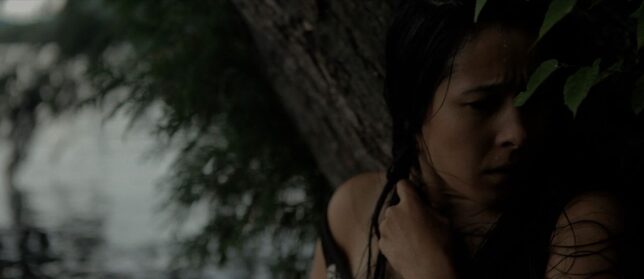
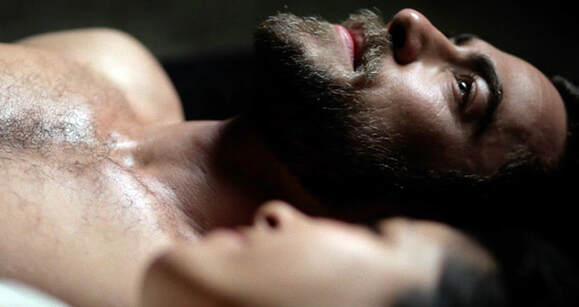
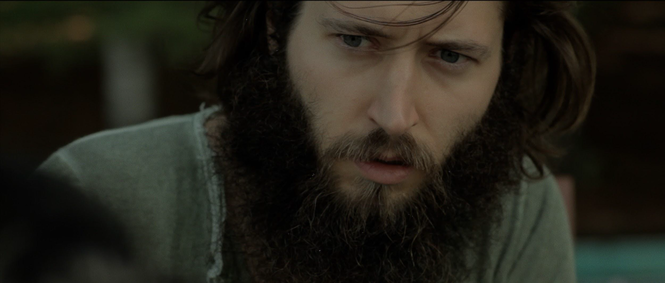
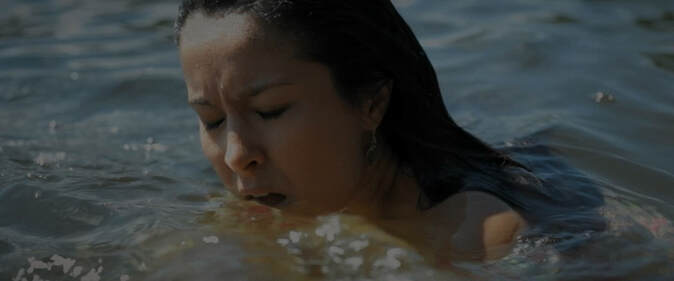
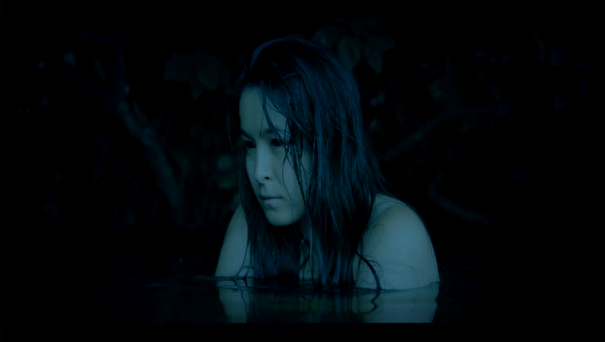
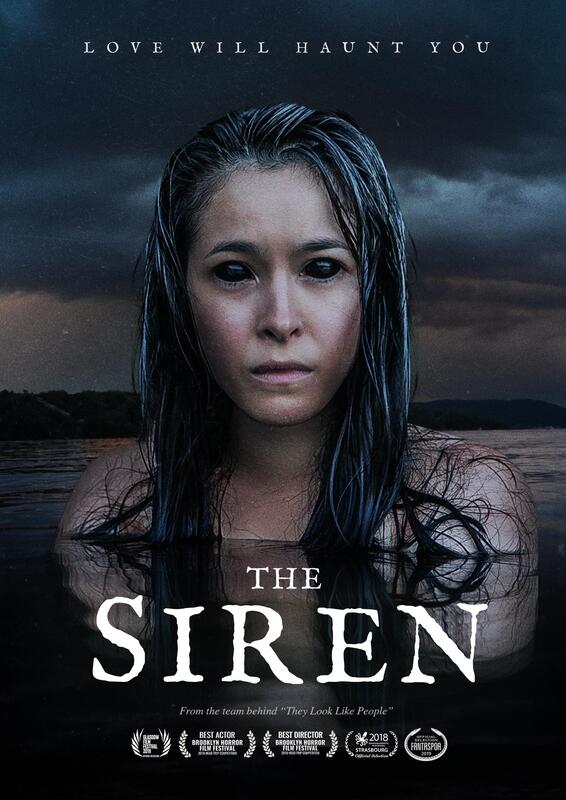
 RSS Feed
RSS Feed